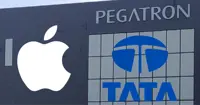Recalls put US stores in a bind over ''Made in China '' products
04 Jul 2007
Mumbai: Large US corporations are stepping up their analysis of imported goods that they sell, making more unannounced visits to Chinese factories for inspections even as stores are forced to pull out merchandise from the shelves at the first hint of a problem. Consumer activists, on the other hand, are weighing the effects of a "Made in China" boycott on the average consumer – even for just a week.
Large US companies like Kellogs, Toys "R" Us and General Mills are increasing their scrutiny of thousands of everyday products they receive from Chinese suppliers, as widening recalls of items like toys and toothpaste force them to focus on potential hazards that were overlooked in the past.
Retailers in the US are increasingly confirming whether the products they sell are made of ingredients imported from China that are banned by the Food and Drugs Administration, sources point out.
Whether
US shoppers are concerned about food and product safety,
set on making a political statement against outsourcing,
or intent on showing a little patriotism, they''re sure
to have a tough time avoiding products made in China.
Chinese exports have been in the spotlight since the
alleged deaths of dogs and cats in North America which
was attributed to tainted Chinese wheat gluten, and
the recall of Chinese-made radial tyres and an alert
by the Food and Drug Administration, warning about contaminated
Chinese seafood.
General Mills, which makes food products like Pillsbury dough and Chex cereals, is testing for potential contaminants that it did not look for previously, although it would not name the substances. Kellogg has increased its use of outside services that scrutinise Chinese suppliers and has identified alternative suppliers if vital ingredients become unavailable. And Toys "R" Us recently hired two senior executives in new positions to oversee procurement and product safety, mainly for goods made in China.
Although Kellogs is not using imported Chinese ingredients, the company said it is taking extra step of scrutinising the ingredients that it does import from China, like vitamins, honey, cinnamon, water chestnuts and freeze-dried strawberries. It also screened its Chinese suppliers for links to the recent pet food recall.
The discovery over the last few months of tainted or defective products from China, including toothpaste, tires, toys and fish, has prompted US lawmakers to fault companies for compromising quality in their quest for inexpensive imports and higher profits.
Shopping
for non-China-made groceries at US grocery stores seemed
to be presenting few challenges, but it turned out to
be more of a case of blissful ignorance than well-informed
consumerism. Product origins are seldom better communicated
in product packages.
Products in non-food category communicated their origins
better than their edible counterparts.
Labels of Suave shampoo, Dial hand soap, Kleenex tissues,
Ziploc bags, Solo cups, Bounty napkins, Tide laundry
detergent, S.O.S. pads and Dawn dish detergent all read
"Made in USA," although none of the labels
got specific about the ingredients.
The 2002 Farm Bill passed by Congress mandated country-of-origin
libelling for seafood, beef, lamb, pork, fish, fruits,
vegetables, and peanuts, but the Bush administration
has delayed its implementation for everything except
seafood until October 2008.
None of the products may have the "Made in China
," tag but most are likely made with at least one
ingredient that originated there and here lies the catch.
The labels on most food products speak little of the
origin of their ingredients.
If US companies do not improve their safeguards and more tainted goods are found to be entering the country, the safety of imports could take on a bigger political dimension, say lawmakers.
The spate of recalls and the rising volume of exports have highlighted the increasing dependence of the big US food manufacturers on China for basic additives like apple juice, a common sweetener, and preservatives like ascorbic acid. These little-known additives form the building blocks of many popular staples in American kitchens, keeping fruit from turning brown or providing the sweetness in breakfast bars.
As of now, China supplies more than half of all the apple juice imported to the United States, up from a fraction a decade ago, say food experts. More than 80 per cent of ascorbic acid, or vitamin C, also used as a preservative, comes from China. Chinese imports of xanthan gum, used to thicken dairy products and salad dressings, account for at least 40 per cent of US consumption.
This
is a problem for the whole food chain, but companies
were overlooking these just because of the fact that
the prices were attractive.































